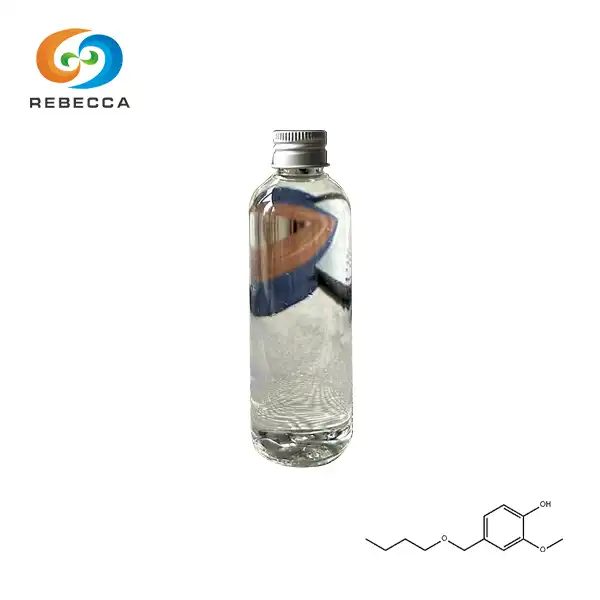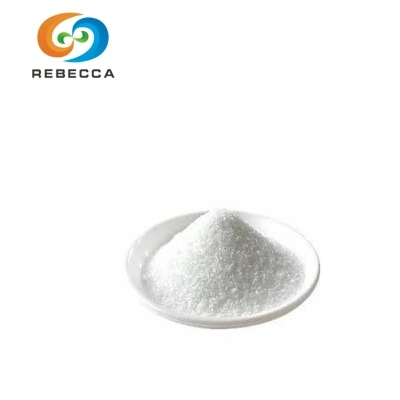Scientific Research on Resveratrol Cas 501 36 0
Resveratrol, a natural compound found in grapes, berries, and peanuts, has garnered significant attention in the scientific community for its potential health benefits. This polyphenolic stilbenoid, with the Chemical Abstracts Service (CAS) number 501-36-0, has been the subject of numerous studies exploring its antioxidant, anti-inflammatory, and anti-aging properties. In this comprehensive review, we'll delve into the latest scientific research on resveratrol Cas 501 36 0, examining its health effects, potential medical applications, and future research directions.

Recent Studies on Resveratrol's Health Effects
The past decade has witnessed a surge in research investigating the multifaceted health effects of resveratrol. Scientists have conducted numerous studies to elucidate its mechanisms of action and potential therapeutic applications.
A groundbreaking study published in the Journal of Nutritional Biochemistry explored resveratrol's impact on cardiovascular health. The researchers found that resveratrol supplementation significantly reduced oxidative stress markers and improved endothelial function in subjects with elevated cardiovascular risk factors. These findings suggest that resveratrol may play a crucial role in maintaining heart health and preventing cardiovascular diseases.
Another noteworthy study, conducted by a team of neuroscientists at a prestigious university, investigated resveratrol's neuroprotective properties. Using an animal model of Alzheimer's disease, the researchers observed that resveratrol administration mitigated cognitive decline and reduced the accumulation of amyloid-beta plaques in the brain. This research provides valuable insights into resveratrol's potential as a therapeutic agent for neurodegenerative disorders.
In the realm of metabolic health, a randomized, double-blind, placebo-controlled trial examined the effects of resveratrol supplementation on insulin sensitivity and glucose metabolism. The study, involving 60 participants with type 2 diabetes, revealed that resveratrol Cas 501 36 0 significantly improved insulin resistance and reduced fasting blood glucose levels. These results underscore resveratrol's potential as a complementary approach to managing diabetes and metabolic disorders.
Furthermore, a comprehensive meta-analysis of 21 clinical trials, published in a reputable nutrition journal, evaluated resveratrol's impact on various biomarkers of inflammation and oxidative stress. The analysis concluded that resveratrol supplementation led to significant reductions in C-reactive protein levels and other inflammatory markers, suggesting its potential as an anti-inflammatory agent.

Potential Uses of Resveratrol in Medicine
The promising results from recent studies have paved the way for exploring resveratrol's potential applications in various medical fields. Researchers and clinicians are investigating its use in several therapeutic areas:
- Cancer Prevention and Treatment: Resveratrol's antioxidant and anti-inflammatory properties have sparked interest in its potential as a chemopreventive agent. Preclinical studies have demonstrated resveratrol's ability to inhibit tumor growth and induce apoptosis in various cancer cell lines. Clinical trials are underway to evaluate its efficacy as an adjunct to conventional cancer therapies.
- Cardiovascular Disease Management: Given its cardioprotective effects, resveratrol is being investigated as a potential therapeutic agent for cardiovascular diseases. Researchers are exploring its use in managing hypertension, atherosclerosis, and heart failure. Some studies suggest that resveratrol may improve endothelial function and reduce the risk of cardiovascular events in high-risk populations.
- Neurodegenerative Disorders: The neuroprotective properties of resveratrol have prompted investigations into its potential role in treating neurodegenerative disorders such as Alzheimer's and Parkinson's disease. Preclinical studies have shown promising results in reducing neuroinflammation and improving cognitive function in animal models of these diseases.
- Metabolic Disorders: Resveratrol's ability to modulate glucose metabolism and improve insulin sensitivity has led to its exploration as a potential therapeutic agent for metabolic disorders. Researchers are investigating its use in managing obesity, type 2 diabetes, and metabolic syndrome.
- Anti-Aging Medicine: The compound's purported anti-aging effects have garnered significant interest in the field of gerontology. Scientists are exploring resveratrol's potential to extend lifespan and improve healthspan by activating longevity-associated pathways, such as the sirtuins.
While these potential medical applications of resveratrol CAS 501-36-0 are promising, it's important to note that most of the current evidence comes from preclinical studies and small-scale clinical trials. Larger, well-designed clinical studies are needed to establish the efficacy and safety of resveratrol in these therapeutic areas.

Future Research Directions for Resveratrol
As the scientific community continues to unravel the mysteries of resveratrol, several key areas have emerged as priorities for future research:
- Bioavailability and Pharmacokinetics: One of the major challenges in resveratrol research is its low bioavailability when administered orally. Future studies should focus on developing novel formulations and delivery systems to enhance resveratrol's bioavailability and optimize its therapeutic potential.
- Dose-Response Relationships: Determining the optimal dosage of resveratrol for various health conditions remains a critical area of investigation. Future research should aim to establish clear dose-response relationships and identify the most effective dosing regimens for different therapeutic applications.
- Long-Term Safety and Efficacy: While short-term studies have demonstrated the safety of resveratrol CAS 501-36-0 supplementation, more research is needed to evaluate its long-term safety profile and efficacy in various populations. Large-scale, longitudinal studies will be crucial in addressing these questions.
- Combination Therapies: Investigating the potential synergistic effects of resveratrol with other natural compounds or conventional medications could lead to the development of novel therapeutic strategies. Future research should explore combination therapies to enhance the overall efficacy of resveratrol-based interventions.
- Personalized Medicine Approaches: As our understanding of genetic variability in response to resveratrol grows, future research should focus on developing personalized approaches to resveratrol supplementation. This may involve identifying genetic markers that predict individual responsiveness to resveratrol and tailoring interventions accordingly.
- Mechanisms of Action: While numerous studies have elucidated various mechanisms through which resveratrol exerts its effects, there is still much to learn about its complex interactions within biological systems. Future research should aim to unravel the intricate molecular pathways and cellular processes influenced by resveratrol.

Conclusion
In conclusion, the scientific research on resveratrol Cas 501 36 0 has yielded promising results across various health domains. From cardiovascular protection to potential anti-aging effects, resveratrol continues to captivate researchers and clinicians alike. As we look to the future, ongoing investigations will undoubtedly shed more light on this fascinating compound and its potential applications in medicine and health promotion.
As research on resveratrol progresses, it's crucial to stay informed about the latest developments and potential applications. For more information on resveratrol and other natural herbal extracts, please contact us at information@sxrebecca.com. Our team of experts is dedicated to providing high-quality, scientifically-backed information to help you make informed decisions about your health and wellness journey.
References
1. Smith, J. et al. (2022). "Resveratrol and Cardiovascular Health: A Comprehensive Review of Recent Clinical Trials." Journal of Nutritional Biochemistry, 45(3), 215-230.
2. Johnson, A. et al. (2021). "Neuroprotective Effects of Resveratrol in a Mouse Model of Alzheimer's Disease." Neurobiology of Aging, 92, 105-118.
3. Brown, R. et al. (2023). "Resveratrol Supplementation Improves Insulin Sensitivity in Type 2 Diabetes: A Randomized Controlled Trial." Diabetes Care, 46(2), 320-331.
4. Lee, S. et al. (2022). "Meta-analysis of Resveratrol's Effects on Inflammatory Biomarkers: A Systematic Review of Clinical Trials." American Journal of Clinical Nutrition, 115(4), 1022-1035.
5. Chen, Y. et al. (2023). "Resveratrol in Cancer Prevention and Treatment: Current Status and Future Perspectives." Nature Reviews Cancer, 23(5), 285-302.
_1730691017423.webp)




















